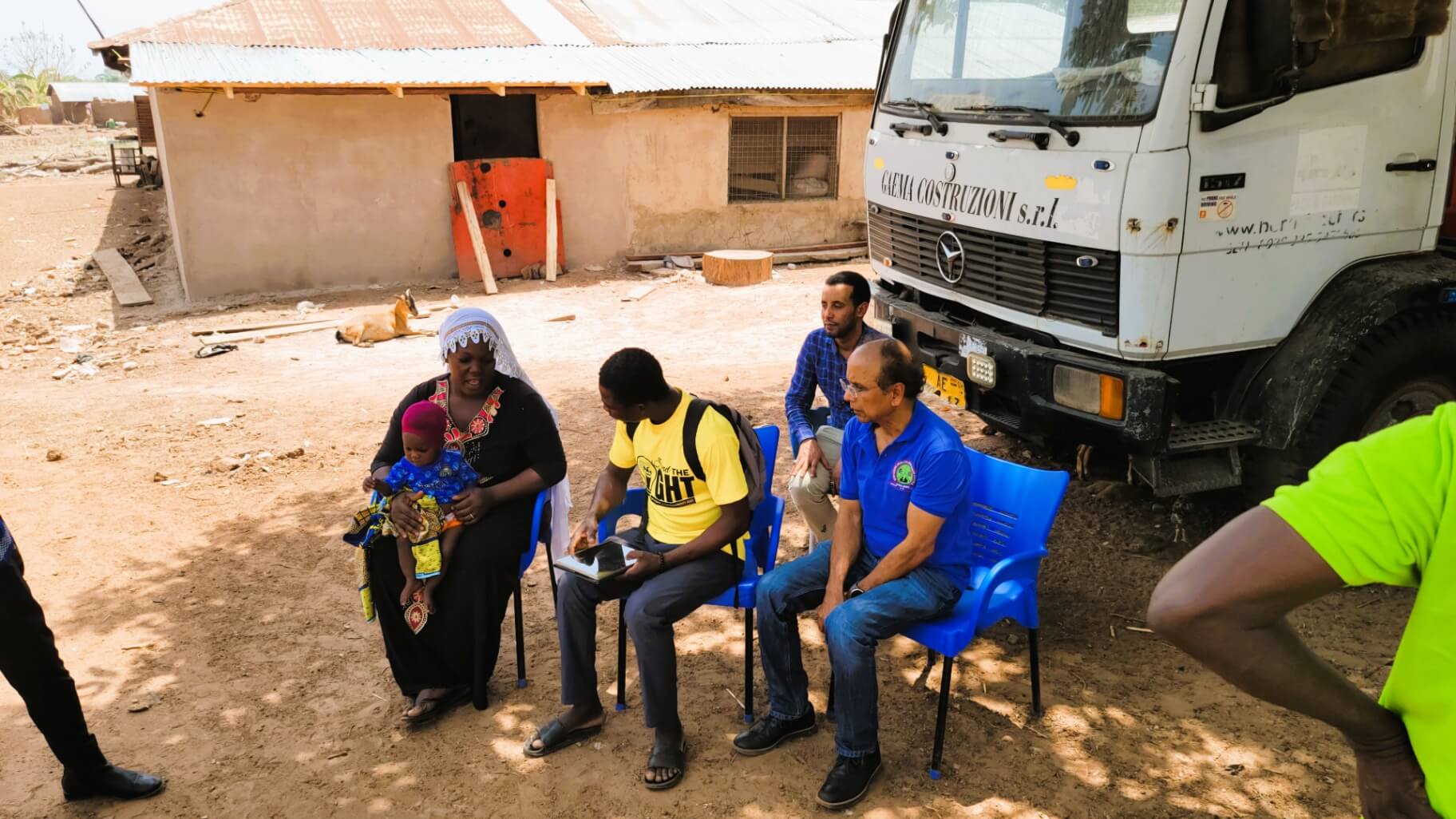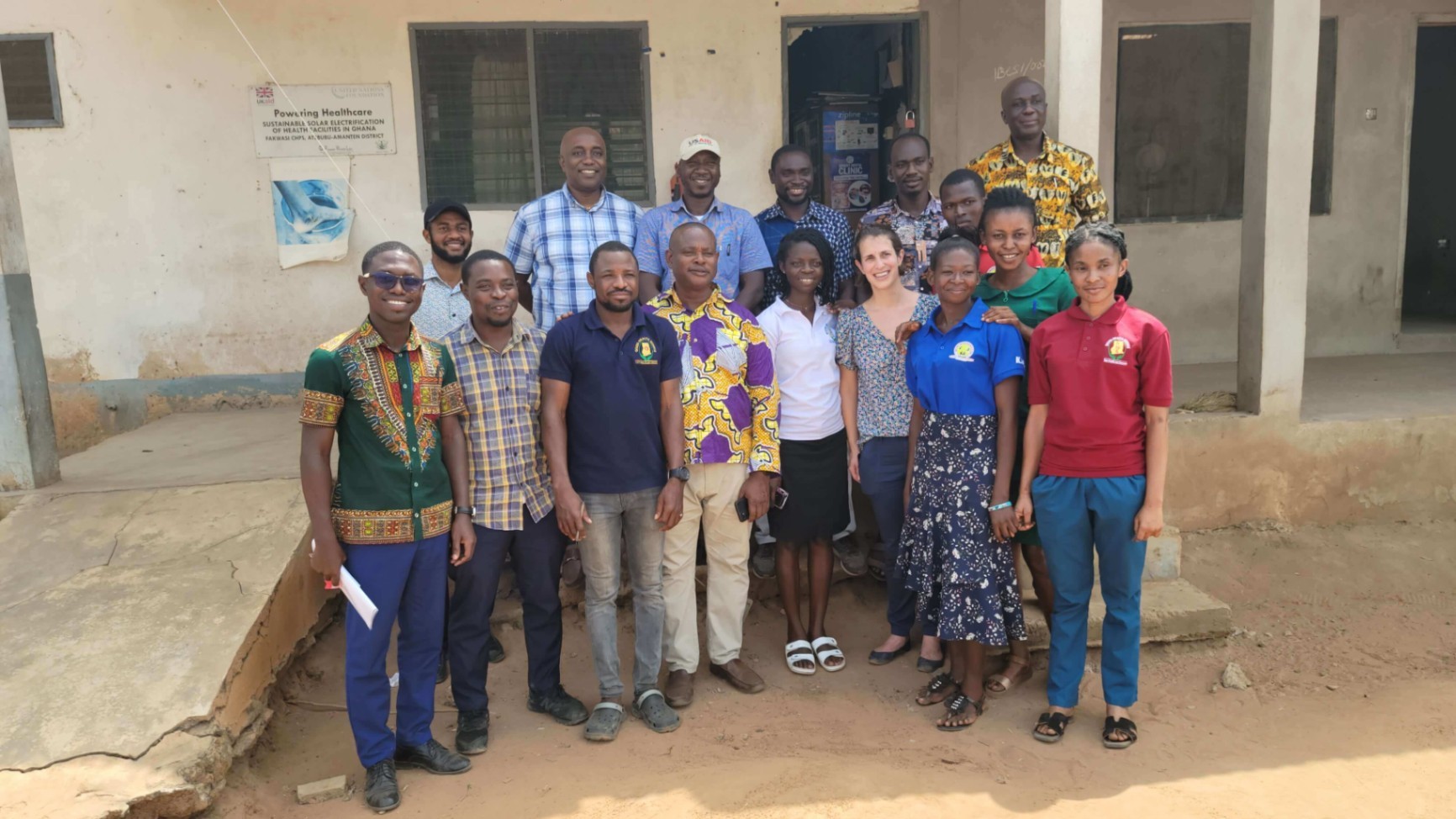The Impact Of A Combination Of The RTS,S/AS01E Malaria Vaccine And Perennial Malaria Chemoprevention In Ghanaian Children (MALVAC-PMC).
July 24, 2022 | Ongoing Projects | Reading time: 6 min
Introduction
The MALVAC-PMC trial is testing new ways to prevent malaria by combining the RTS,S/AS01E malaria vaccine with either perennial malaria chemoprevention and sulfadoxine/pyrimethamine (PMC-SP) or PMC-SPAQ (PMC-SP plus amodiaquine). This combination could greatly reduce malaria cases, hospital visits, and deaths in children. To ensure accurate and reliable results, the study is using a double-blind, placebo-controlled design, where neither participants nor researchers know who receives the treatment or placebo. Advanced tools are being used to collect data and monitor any side effects. If successful, this approach could be recommended by the World Health Organization (WHO) and included in Ghana’s routine immunization program to protect more children from malaria.
Investigators
Kwaku Poku Asante, Daniel Chandramohan, Kaali Seyram, Samuel B. E. Harrison, Prince Agyapong Darko, Owusu Boahen, David Dosoo, Dennis Adu-Gyasi, Elvis Wilson, Afia Korkor Opare.
Background
Intermittent preventive treatment of malaria with sulfadoxine/pyrimethamine (SP) in infants (IPTi) was recommended for deployment in countries with a high burden of malaria in infants, and a low prevalence
of SP resistance by the World Health Organization (WHO) in 2010. Recently, the IPTi regimen was renamed perennial malaria chemoprevention (PMC) and now focuses on flexible dosing regimens and age groups extending beyond infancy
and allows for utilization of treatments other than SP. Over ten countries are currently implementing or planning to implement PMC as a malaria control intervention. A trial undertaken in young children in Burkina Faso and
Mali showed that combining the RTS,S/AS01E malaria vaccine with Seasonal Malaria Chemoprevention (SMC) with SP and amodiaquine (SPAQ) substantially reduced the incidence of uncomplicated malaria, hospital admissions with severe
malaria, and deaths attributable to malaria by 60%, 70%, and 70% respectively, in addition to the substantial impact obtained in children who received either intervention given alone.
Combining RTS,S/AS01E with PMC, and extending the period of administration of the latter into the second year of life, could have a strong synergistic effect. Many countries are currently, or will shortly consider, deploying PMC-SP and/or the RTS,S/AS01E intervention, but there is no empirical evidence to inform whether these interventions should be combined. Evidence generation on the effectiveness of PMC-SP is ongoing in current pilot studies. SPAQ is likely a more effective chemoprevention regimen, especially in countries where SP resistance is high. Therefore, this study sets out to investigate the efficacy of adding PMCSP or PMC-SPAQ to RTS,S/AS01E administered through the expanded programme on immunization (EPI) delivery system in Ghana.

On-site support provided by investigators from LSHTM
Objectives
The objective of this study is to determine the efficacy of the combination of RTS,S/AS01E and PMC with sulphadoxine/pyrimethamine (PMC SP) or RTS,S/AS01E and PMC with SP and amodiaquine (PMC-SPAQ) against clinical malaria among children up to 24 months of age compared with RTS,S/AS01E vaccine administered alone.

Vaccination site visit by a section of investigators from collaborating institutions
Study Methodology
This study uses an individually randomized, double-blind, placebo controlled design undertaken in Atebubu Amantin Municipality of the Bono East Region of Ghana to validate the hypothesis that RTS,S/AS01E combined with PMC-SP or PMC SP-AQ will be superior to RTS,S/AS01E given alone in reducing the incidence of clinical malaria in young children. Approximately 2,040 infants are expected to be recruited at 14 to 18 weeks of age and randomized 1:1:1 to receive RTS,S/AS01E + PMC-SP with AQ placebo, or RTS,S/AS01E + PMC-SPAQ or RTS,S/AS01E + PMC SPAQ placebo. There is no stratification in recruiting study participants. Each participant will remain in the study for 22 months (from 3 months – 24 months inclusive).
A participant will be considered to have completed the study if he or she has completed all phases of the study including the last visit. A number of sub-studies will be undertaken to address the immunological responses to RTS,S/AS01E in each group, the impact of PMC-SP + RTS,S/AS01E or PMC-SPAQ + RTS,S/AS01E on the overall immune response to malaria. In vivo and molecular investigation of the efficacy of the SPAQ combination and SP. Studies on tolerability and acceptability of the interventions and studies which will inform the widespread deployment of the combined intervention if it shown to be effective will be done. Details of these sub-studies will be presented in separate protocols. In the case of all sub- studies, the investigators will ensure that there is no impact on the primary objectives of the trial as set out in this protocol.
Expected Outcomes
The study is expected to measure the incidence of clinical malaria defined as fever of >37.5oC or a history of fever in the past 48 hours, and a positive malaria blood film with a parasite density of 5,000 per µl or greater in children up to 24 months of age.
Support Services
The study offers support to lower-level health facilities with limited diagnostic capacity, such as CHPS compounds, by processing malaria blood smears at the KHRC clinical laboratory and relaying the results to assist with clinical decisions.
Funders
US President’s Malaria Initiative (PMI), GiveWell and Gates Foundation through the PMI Insights Project.
External Collaborators
1. London School of Hygiene and Tropical Medicine (LSHTM)
2. Program for Appropriate Technology in Health (PATH)
3. PMI Insights
4. PMI (USAID and the US Centers for Disease
Control and Prevention)
5. Ghana Health Service (GHS)
6. National Malarial Elimination Program (NMEP)
Study Duration
36 months
Start Date
October 2023
End Date
July 2027
